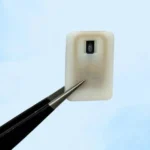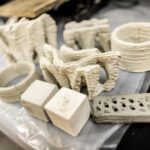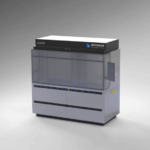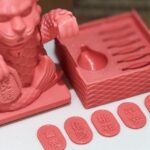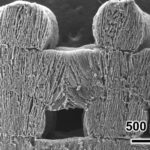Researchers at the University of Birmingham have developed a recyclable resin from bio-sourced materials for 3D printing. This resin allows high-resolution 3D printed structures to be produced and recycled within an almost fully closed-loop system. Unlike traditional photopolymer resins made from petrochemicals, which are challenging to recycle due to irreversible bonds, this new resin can be broken down and reprinted with minimal additives.

The team utilized lipoic acid, a naturally occurring fatty acid, to create a combination of two monomers that form the recyclable resin. This resin can be reverted to its monomers or the original molecule, enhancing its recyclability. In their study, researchers successfully demonstrated two recycling cycles and believe further cycles are feasible without significant degradation of the material’s properties.
Photopolymer resins, commonly used for their ability to harden upon exposure to light, have not seen significant advancements in their composition since their inception in the 1980s. Current resins typically come from petrochemical feedstocks, which pose environmental challenges due to their limited recyclability and the energy-intensive processes required to break them down. This new bio-based resin addresses these issues by allowing the material to be efficiently broken down and reused.
Potential applications for this resin include industries that rely on rapid prototyping, such as automotive, medical, and dental sectors, as well as jewelry design. Despite its current flexibility, improvements are anticipated to expand its use in various industrial applications. Future developments may enhance its mechanical properties, making it suitable for a broader range of uses.
A patent application for this resin and its 3D printing use has been filed by University of Birmingham Enterprise. This development promises to make recycling an integral part of the 3D printing process, contributing to more sustainable manufacturing practices.
Source: birmingham.ac.uk



